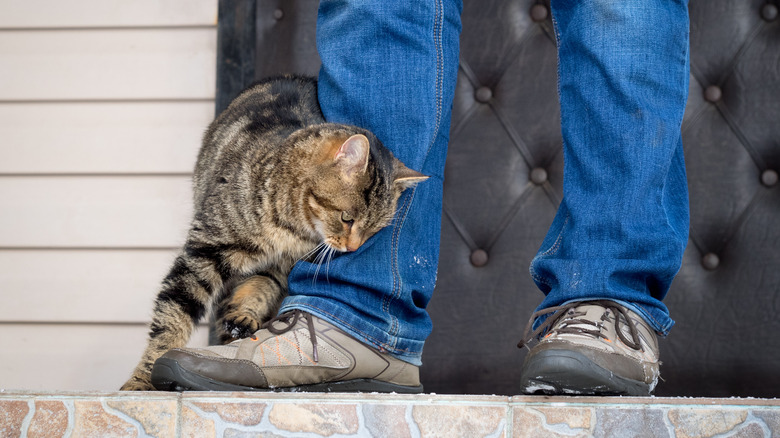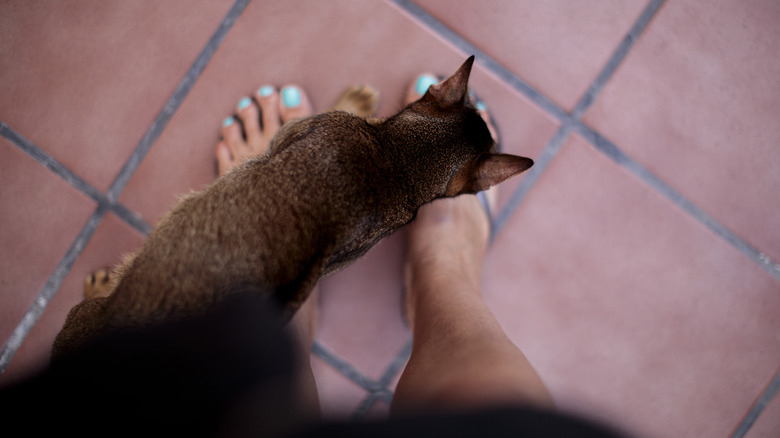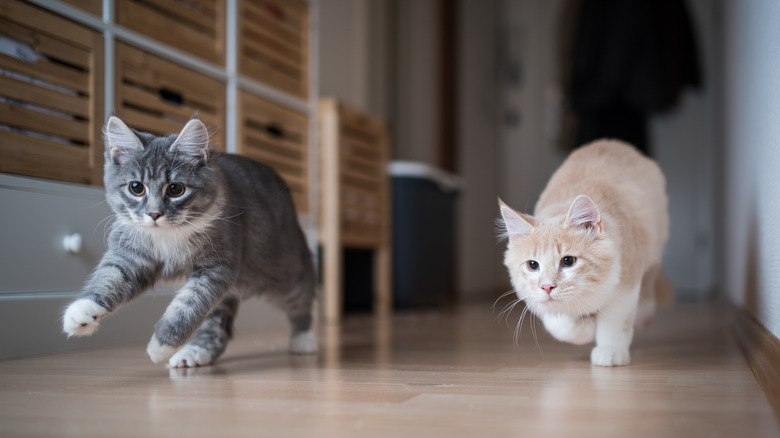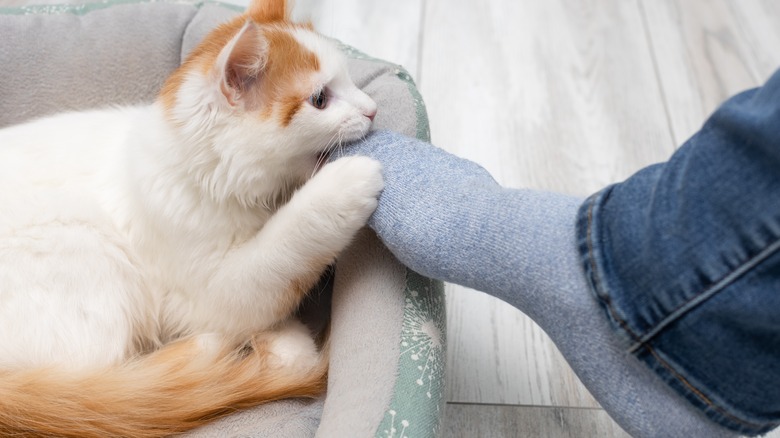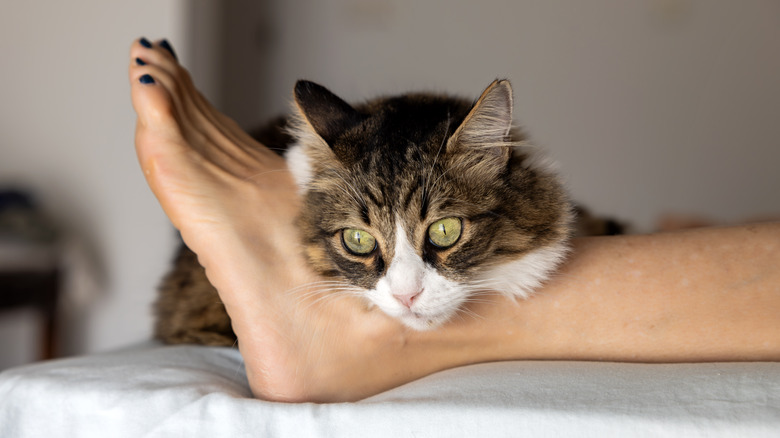Why Does My Cat Attack My Ankles When I'm Walking?
Whether it's sipping water out of the sink faucet or bouncing off the walls, cats sure to know how to keep their owners guessing about what's going on inside their heads. Thankfully, for every puzzling cat behavior, there's often an explanation. For instance, if you're wondering why cats chase their tails, it comes from a genetic drive to let out their frustration.
However, not all quirks are so playful and silly, such as when your cat suddenly decides to lunge at or even claw your ankles when you're walking through the hallway. This can be particularly jarring if everything else seems fine with your cat. You just had a snuggle session earlier, so why are they attacking you?
First, don't take it too personally. Your cat probably doesn't meant to hurt you, even if they accidentally left you with a few scratch marks. There are several reasons your cat can suddenly shift to attack mode when it comes to your ankles that have little to do with what you've done.
They're mistaking your ankles for a small animal
Even though your pet cat is domesticated, they still have a prey drive because they are predators by nature. To them, the sound of shuffling feet is not so different from a small animal moving around bushes in the wild. As soon as you turn the corner, it activates their inner hunting instincts, which prompts them to view your legs as prey. Although this may be inconvenient for your poor feet, it's important to stay calm and not overreact. Doing so could cause your cat to become more aggressive, which can be a problem if they're already in fight-or-flight mode.
If you notice your cat tends to wait for you around a corner before pouncing, try throwing a toy ahead of you. This will trigger give them something else to focus on. If they still pounce on your ankles, make sure not to give them a reaction, and try to keep walking to the best of your ability. This shows you're not willing to reward them with attention, which will train them to understand that the behavior is not acceptable.
They need more playtime
Sometimes, your cat may simply attack your ankle because they want to play. This is especially the case if they have the zoomies. Although some cat owners don't mind the occasional ankle attack, if you're bothered by your cat's behavior, it may be worth investigating whether they're getting enough exercise and play. Many cats can become overly active and experience the zoomies if they aren't expending enough of their energy. Be sure to give your cat attention randomly throughout the day so they don't feel like they urgently need to get your attention when you walk down the hall. If you think your kitty is just too rambunctiously playful, set aside 15 minutes of playtime with your cat so they are sufficiently worn out.
They could have a medical condition
Although unlikely, if your cat is getting sufficient play and still regularly attacking ankles, it could be a sign of a medical condition, like hyperthyroidism. Cats who have an overactive thyroid are more likely to exhibit aggressive behavior than cats with a stable thyroid. This is usually accompanied by other symptoms like weight loss and an increased appetite. If you're having trouble discerning whether your cat's behavior is the result of a medical problem, take them to the vet to have their thyroid hormones evaluated.
Your cat needs more attention or affection
Sometimes, your cat may bite your ankles in an attempt to get your attention or show you affection. After all, cats who like each other tend to groom one another as a sign of camaraderie. If your cat's ankle attack is followed up with licking and gentle nibbling, it could mean they want you to pay attention to them. They could also want you to return the favor with some pets.
Biting your ankle could also be your cat's attempt to communicate something important, such as a desire or food or that they need help. Your cat can't talk, after all, and sometimes when they meow, you just don't get it. Try to pay attention to when your cat is biting or swatting at your ankles. Is it when they are done playing? Or around meal time? With some observation, you may be able to gauge what they want before they decide to attack those tender toes.
